Although the coronavirus was the top issue on the minds of voters this cycle, Latino voters, particularly young Latino voters, were energized by demands for social justice and discrimination directed at their community.
The Latino Decisions Election Eve Survey identified that nearly 1 in 5 Latino voters (19%) across the country said that discrimination and social justice was one of the top issues facing the Latino community that politicians should address. This is higher than immigration reform as a priority for Latino voters and up significantly from 2016. These issues were even more salient among Latinos under 40, 23% of which chose them as one of their top issues facing Latinos in 2020. This was significantly higher than the other age group of Latino voters (+11% compared to Latinos aged 60+).
The social unrest across the country against structural racism and police brutality was a major factor in the 2020 election for the Latino electorate. This context helps explain why another 13% of Latino voters (18% among those under 40) identified police brutality / criminal justice reform as one of their top issues this election season.
Latino Decisions data has helped provide perspective on the many challenges Latinos face with the criminal justice system that have made this a priority for voters in an election season where this was part of the national narrative. For example, 37% of Latino voters in the Election Eve Survey reported that someone in their family or personal network has been unfairly stopped or harassed by police or law enforcement. An Abriendo/Puertas Latino Decisions National Family Survey found that 36% of Latino families have experienced excessive force by police.
The Election Eve survey also found that a robust 83% of Latinos believe that the rise of violent white supremacists is a major threat to our country – 58% strongly agree. This growing concern across the electorate was salient in an election where concerns with armed militias intimidating voters were high. The high turnout of Latino voters across the country speaks to the resilience of this community who overcame fears of this potential threat to their right to vote.
This election season has included wide-spread protests across the country against police brutality, structural racism, and criminal justice reform. While 20% of all Latino voters indicated that they have attended a march or rally to support racial justice, or protest policy brutality this election season, 28% of Latinos under the age of 40 did so. It is therefore clear that young Latinos had a significant impact on the election as both voters and protestors.
With this unprecedented engagement in the 2020 election, Latinos are going to be looking to the Biden administration to address the concerns that they have raised during the election season. The Election Eve Survey provides a few indicators to help identify what Latino voter’s policy preferences are in the area of police reform.
- 68% agree with the statement that “my local government should cut funding to law enforcement and redirect it to social workers and youth programs which are proven to reduce violence.”
- 63% agree with the statement that “we need police reform to stop the killing and abuse of African Americans, Latinos, and People of Color. We need to ban chokeholds and strangleholds, and greatly reduce police shooting at suspects.”
- 63% agree with the statement that “police need to be held accountable for their actions when they kill or abuse (Black/African American) people. We should get rid of laws that make it hard to prosecute police officers, so they face justice like everyone else.”
The Latino community is conscious of the racism that they face in the country and will be looking to the new Biden-Harris administration to address their growing concern with this issue. In fact, the majority of Latino voters (62%) believe that discrimination directed at their community has gotten worse since 2016. Although not having a President in the White House who stokes the fires of racism directed at immigrants and Latinos will be huge, it is critical to recognize that with a high percentage of the American public supporting Trump’s campaigns that racialized Latinos, there will be a lot of work ahead for the Biden and Harris team.
Gabriel R. Sanchez, Ph.D., is a Professor of Political Science and Founding Robert Wood Johnson Foundation Chair in Health Policy at the University of New Mexico, Director of the UNM Center for Social Policy, and a principal at Latino Decisions.
The Brookings Institution is committed to quality, independence, and impact.
We are supported by a diverse array of funders. In line with our values and policies, each Brookings publication represents the sole views of its author(s).
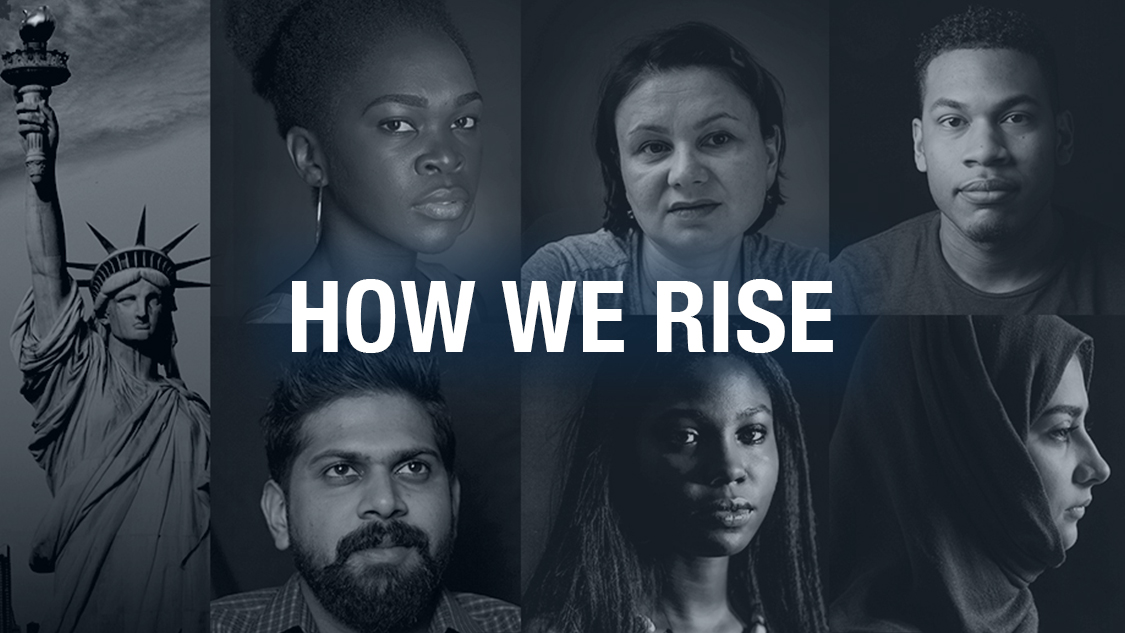
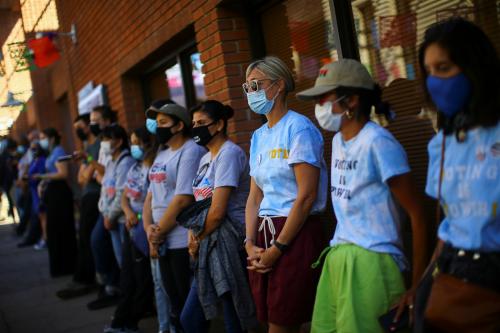
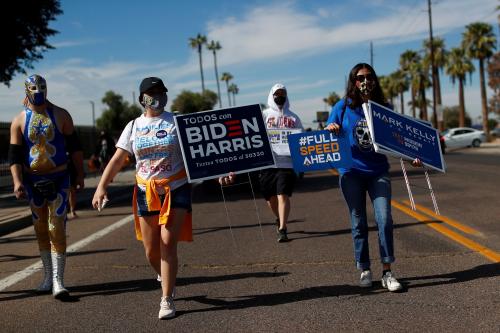
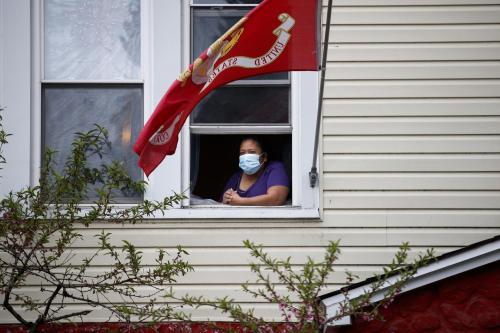
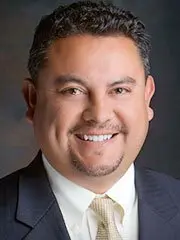

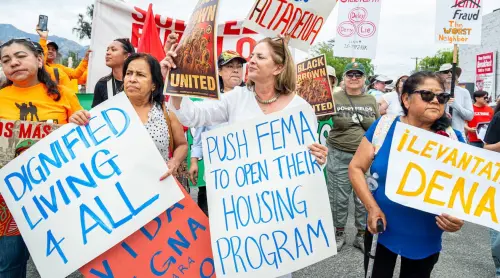
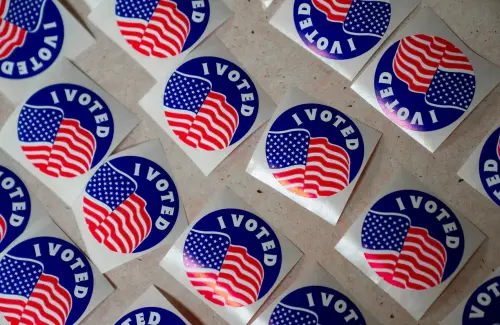
Commentary
Yes, social justice and discrimination were driving issues for Latino voters in 2020
November 6, 2020